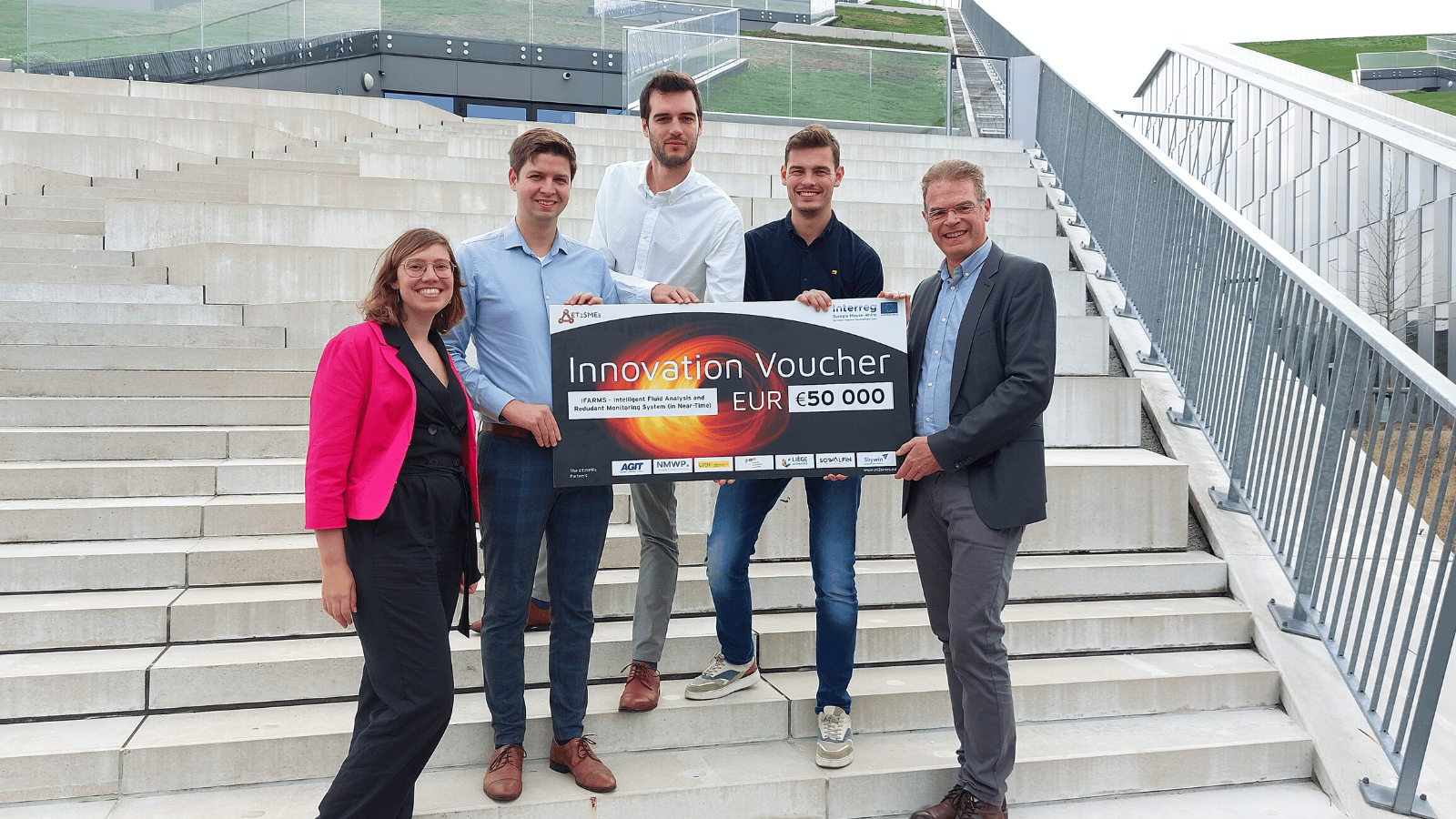
Limburg start-up Agrippa detects leaks for the upcoming Einstein Telescope
POM Limburg project develops new AI application
With the support of POM Limburg, the Limburg start-up Agrippa is developing a security system that will detect leaks in the Einstein Telescope’s infrastructure using artificial intelligence and wafer-thin sensors. The company is doing so in collaboration with German sensor developer Incoretex.
The Einstein Telescope is a state-of-the-art research centre researching the origins of the universe, black holes and stars. The triangular telescope, whose sides are 10 kilometres long, will be built some 300 metres underground. The Italian island of Sardinia and the border triangle in the Meuse-Rhine region are still in the running to build the observatory. Europe will make a decision in 2024. The arrival of the telescope is expected to bring €2 billion in investments and 1,500 jobs to the Meuse-Rhine region.
Leak detection
The Einstein Telescope is used for research into gravitational waves. Leaking water pipes are a risk in this regard and could seriously damage the infrastructure in the telescope. POM Sector Manager for Manufacturing Economy Maxime Corvilain: “Leaks not only cause corrosion, mould and short-circuits, but also concrete rot, vibration and, in the worst case, disruption to measurements. All very detrimental to the operation of the research centre. That makes it crucial to detect leaks quickly and accurately, and this new system from Agrippa can do that. The pipes are constantly monitored by AI software and highly accurate sensors.”
AI-powered sensors
Hasselt-based start-up Agrippa specialises in software systems based on artificial intelligence. Through pressure and other data, their software traces the location of a leak. For the Einstein telescope, the start-up is teaming up with German company Incoretex, which develops innovative sensors. The integration of these two technologies will enable accurate and high-performance leak detection.
Sam Achten, founder of Agrippa Cleantech: “We are taking on the challenge of developing a system that not only detects leaks, but also provides more insights into the symptoms underlying a water leak. We must use resources, such as water, more sustainably. An innovative project like the Einstein Telescope is an excellent opportunity to develop new technologies that will prepare us for the future.”
Chemicals sector
The detection technology developed is not only relevant for the Einstein Telescope, but could also serve some broader market applications, such as in the chemicals sector where pipeline corrosion is a serious problem.
Deputy Tom Vandeput: “The possible arrival of the telescope is already creating innovation. Companies are being inspired by the many technological challenges the project presents. This will result in some revolutionary technologies. Right now, the Einstein Telescope is already an economic catalyst for Limburg.”
Links with businesses
Since the start of the Einstein Telescope project, POM Limburg has been focusing on the link between the Einstein Telescope and the business world. For example, POM is guiding companies and bringing them around the table with knowledge institutions. Tom Vandeput: “And that has paid off. After the likes of Jansen the Building Company, Aperam and Calculus, Agrippa is the sixth Limburg company to seize an opportunity. These companies are not only bolstering our candidacy, but also giving a general boost to Limburg as a high-tech knowledge region.”